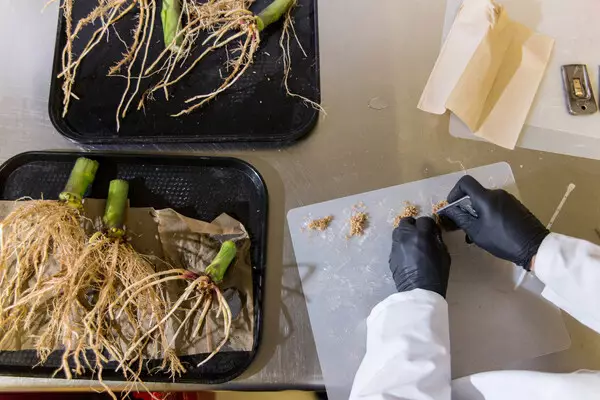-Enhancing Cybersecurity in the ASEAN region by Expanding Regional Alliances and Forging New Partnerships-
TOKYO, Nov. 13, 2024 /PRNewswire/ -- On October 17, 2024, the ASEAN Japan Cybersecurity Community Alliance (AJCCA) held a successful conference at the Suntec Convention & Exhibition Centre in Singapore. This year's theme was "The Strategic Role of Cybersecurity Communities in Driving Cyber Resilience in Asia," Government officials, industries, and academics in the cybersecurity field participated, making it an opportunity to deepen regional cooperation.
The welcome speech by AJCCA Chairman Dr. Rudi Lumanto marked the beginning of the event, where he reported on the cybersecurity strengthening initiatives that the association has been advancing. He particularly emphasized the importance of tackling cyber threats through regional cooperation. Dr. Lumanto also expressed his commitment to future efforts, leaving a strong impression on the participants.
â–ªï¸Laos has joined as a new member
Lao Cybersecurity Community (LCSC) has officially joined AJCCA as a member. With this addition, the number of AJCCA member countries has expanded to 10, including Laos. This further strengthens the cooperation across ASEAN, and it is expected to enhance regional cybersecurity efforts.
â–ªï¸AJCCA and SEA-CC Global Partnership to Strengthen ASEAN Cybersecurity
In a landmark agreement aimed at bolstering cybersecurity across Southeast Asia, the ASEAN Japan Cybersecurity Community Alliance (AJCCA) and the South East Cybersecurity Consortium (SEA-CC) signed a memorandum of understanding, witnessed by Singapore's Minister of State, Ministry of Digital Development and Information, Ms. Rahayu Mahzam, and AJCCA Chairman, Dr. Rudi Lumanto. Marking a significant step forward for both organizations in their mission to create a safer digital environment in the ASEAN region.
This agreement makes SEA-CC the second global partner of AJCCA, reinforcing their shared commitment to promoting cybersecurity programs and activities across the region. Both organizations are eager to reach more users and provide tangible benefits to society through their joint initiatives.
Dr. Rudi Lumanto expressed confidence in the partnership's potential, stating, "Collaborating with various communities in the region will enhance security awareness and advance our mission of improving and sustaining cybersecurity capacity." He emphasized that these collaborations are vital to ensuring the region is prepared for the evolving cyber threats.
â–ªï¸AJCCA and idCARE Forge New Partnership to Promote Cybersecurity Awareness
In a significant move to bolster regional cybersecurity, the ASEAN Japan Cybersecurity Community Alliance (AJCCA) signed a mutual understanding and cooperation agreement with the Indonesia Cyber Awareness and Resilience Center (idCARE) of the University of Indonesia.
This partnership marks a major milestone for AJCCA, as idCARE becomes the third global partner in its mission to enhance cybersecurity across the region. Both organizations emphasized that the collaboration would focus on promoting cybersecurity awareness and capacity-building initiatives, which they view as critical in addressing the emerging and sophisticated cyber threats faced by governments, businesses, and individuals in the digital age.
Dr. Salman, Chair of idCARE, expressed his enthusiasm for the new partnership, stating that it would allow the benefits of idCARE's programs to reach a broader audience across ASEAN. "This collaboration will boost the impact of our initiatives, especially in promoting resilience in the face of evolving cyber threats," he said.
As part of this cooperation, idCARE has also introduced a new open-source security monitoring tool, Mata Elang, developed under their Project Elang initiative. This tool has now been made available through AJCCA's community services, offering a free and accessible alternative for anyone seeking security monitoring solutions. This initiative aligns with the shared goal of both organizations to provide resources that can help safeguard digital environments.
Dr Rudi Lumanto, Chairman of AJCCA, mentioned that this partnership highlights AJCCA's continued efforts to strengthen the region's cybersecurity framework, focusing on community-based solutions and open-source tools that address real-world security challenges.
â–ªï¸AJCCA Announced Cybersecurity Resilience Awards Honoree at Singapore Cyber Security Week
AJCCA announced the award honoree of the First Cybersecurity Resilience Awards (ACRA). The prestigious awards aim to recognize individuals who have made significant contributions to advancing cyber resilience in their respective countries across the ASEAN region and Japan.
The head of the award committee, Dr. Hiroshi Esaki, shared that the ACRA initiative is designed to honor those who have played a pivotal role in championing cybersecurity and resilience within the region. "This initiative will celebrate individuals who have demonstrated exceptional leadership and commitment to cybersecurity in Japan and ASEAN countries," Dr. Esaki noted. "It can have numerous positive impacts on the broader cybersecurity landscape, fostering a community that values resilience and collaboration."
ACRA Lead Coordinator, Sam Jacoba, added that the award would spotlight the exemplary work done between 2019 and August 2024. "The nominees will be evaluated based on five core criteria that align with the Vision, Mission, and Values of the AJCCA," he said. "These are: Dynamic Leadership, Resilience, Trustworthiness, Respect, and Collaboration."
The inaugural ACRA 2024 awards this year recognized 19 individuals from Japan and ASEAN countries for their dedication to advancing the AJCCA's vision of "a dynamic and resilient cybersecurity community in our region through trustworthy and respectful collaboration." These awardees have demonstrated unwavering commitment to promoting cybersecurity and resilience in their respective nations, ensuring the growth of a secure digital ecosystem across the region.
This initiative marks a significant milestone in AJCCA's efforts to foster collaboration and resilience among its members, with the hope of driving future advancements in the cybersecurity landscape throughout Southeast Asia and Japan.
List of ACRA Honorees:
Dr. Rosyzie Anna Awg Hj Md Apong (Brunei)
Mr. Mohamad Azad Zaki Haji Mohd Tahir (Brunei)
Mr. Ann Kim (Cambodia)
Mr. Phannarith Ou (Cambodia)
Dr.-Ing. Kalamullah Ramli (Indonesia)
Dr. Rudi Lumanto (Indonesia)
Dr. Koji Nakao (Japan)
Dr. Hiroshi Esaki (Japan)
Dr Amirudin Abdul Wahab (Malaysia)
Mr. Tahrizi Tahreb (Malaysia)
Mr. Jeffrey Ian C. Dy (Philippine)
Mr. Angel S. Averia, JR (Philippine)
Mr. Ng Hoo Ming (Singapore)
Mr. Johnny Kho (Singapore)
Dr.M.L.Kulthon Kasemsan (Thailand)
Dr. Prinya Hom-anek (Thailand)
Mr. Ngô Tuấn Anh (Vietnam)
Mr. Nguyá»…n Thành HÆ°ng (Vietnam)
Mr. Masayuki Furukawa (Japan)
â–ªï¸ AJCCA Conference 2024 - Videos
The AJCCA Conference 2024, held on November 17 in Singapore, is available to view on the AJCCA website. >> https://ajcca.net/
URL: https://ajcca.net/
Contact: info@ajcca.net
** The press release content is from PR Newswire. Bastille Post is not involved in its creation. **

AJCCA Conference 2024 in Singapore - Strengthening Cybersecurity Alliances and Recognizing ACRA Achievements

AJCCA Conference 2024 in Singapore - Strengthening Cybersecurity Alliances and Recognizing ACRA Achievements










